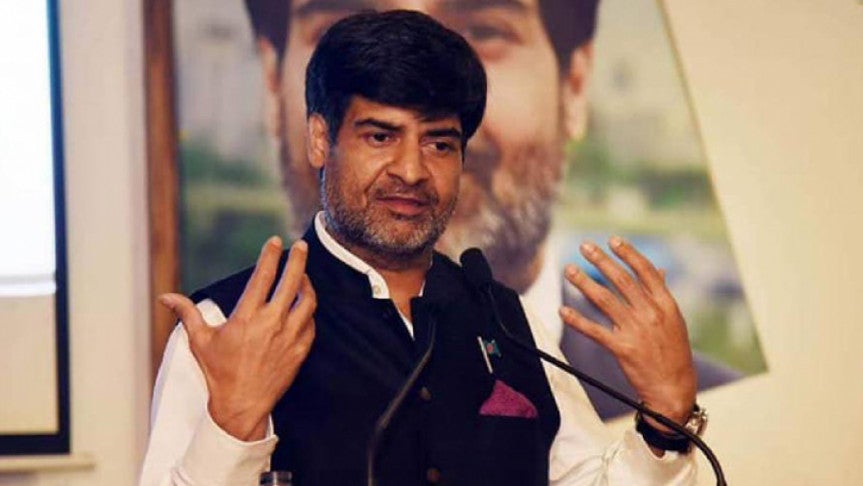Dhaka, Delhi need to move beyond G2G for greater good: ORF President

Dhaka: Bangladesh and India now need to move beyond the government to government (G2G) mechanism creating a stronger bonding within communities for greater good as the two countries will become important economic actors in the region in the next 10 years, says President of a leading think tank on Wednesday, reports the UNB.
India’s Observer Research Foundation (ORF) President Dr Samir Saran said the relationship between the two countries at the government level has never been so strong and robust but he still believes they are yet to exploit the full potential.
“There’re vital ingredients which are missing,” he said adding that communities of the two countries—academic community, artists, business community and grassroots workers—need to be far more integrated.
Dr Saran was addressing a public lecture titled ‘India, Bangladesh and Indo-Pacific’ arranged by Centre for Governance Studies at Bangladesh Institute of International and Strategic Studies (BIISS) auditorium.
CGS Chairperson Prof Ataur Rahman chaired the event moderated by its Executive Director Zillur Rahman.
Dr Saran laid emphasis on creating a P2P (people-to-people) format for partnering with each other on common goals saying there are bigger things for both the countries in the days ahead.
“We need far more people to people engagements, far stronger communities’ engagements and cultural intimacy,” he said adding that it is disappointing that the countries did not see more people like Rabindranath Tagore who are cultural icons of both sides of the border.
Dr Saran who curates India’s annual flagship platform on geopolitics and geo-economics - the Raisina Dialogue said, “I do sense that we are underperformed as a region. We are underperformed as neighbors. We are the least integrated of all regions in the world.”
He laid emphasis on creating more such conversation between Indian and Bangladeshi voices for exchanging ideas freely.
Talking about the “complicated and complex” joining of the Indian Ocean with the Pacific Ocean, he said Bangladesh and India are core actors in the Indo-Pacific and the two countries will have to navigate both opportunities and challenges.
In 2017, the “Indo-Pacific” emerged as a defining geopolitical construct tying the future of states from East Africa to East Asia together with big powers, such as the US, China, India, and Japan.
He also touched upon how China is truly becoming an Indo-Pacific player while the rest are just talking apart from the reemergence of a “supercontinent” called Eurasia.
Describing how countries are trying to find ways to sustain multilateralism, Dr Saran said politics, commerce and infrastructure are reconnecting Asia and Europe.
Talking about Bangladesh’s growing economy, he laid emphasis on creating favorable international environment that will allow economies both in Bangladesh and India to grow and help people of the two countries prosper.
Dr Saran said India and Bangladesh must start creating a favorable international ecosystem as two countries have similar vision and highlighted importance of building strong institutions.
Foreign affairs experts, former diplomats and BIISS Chairman Munshi Faiz Ahmad were, among others, present.

 NTV Online
NTV Online




